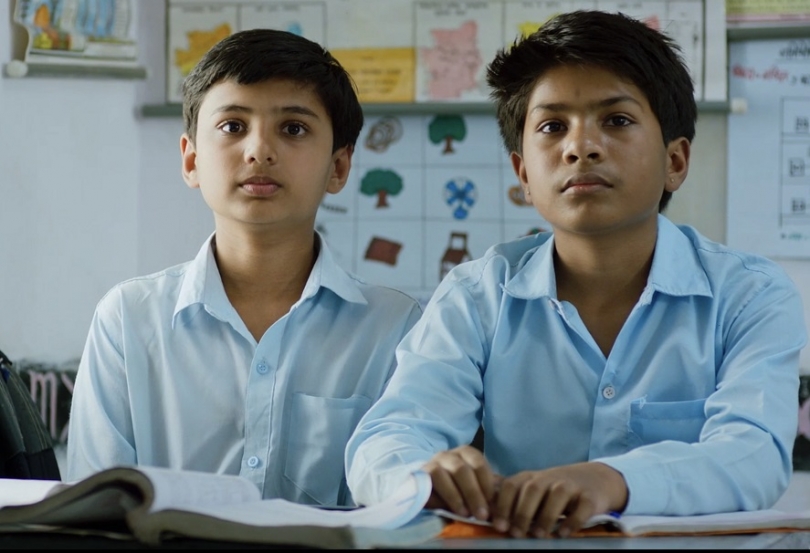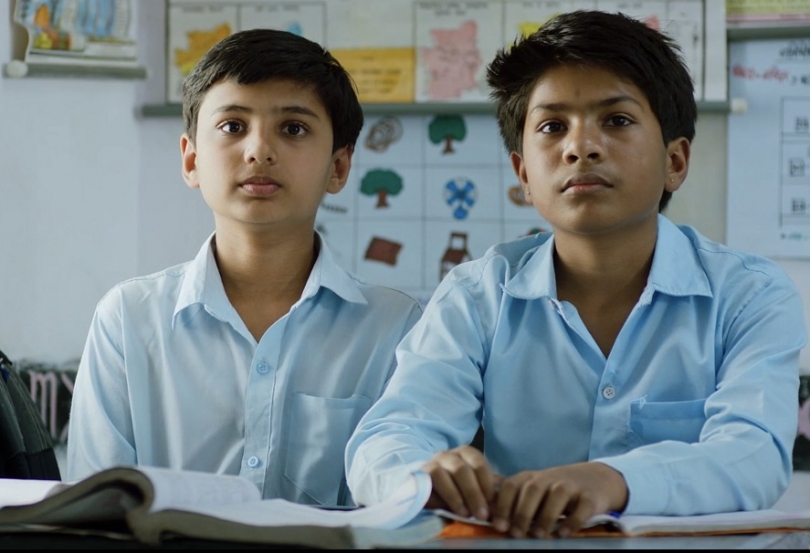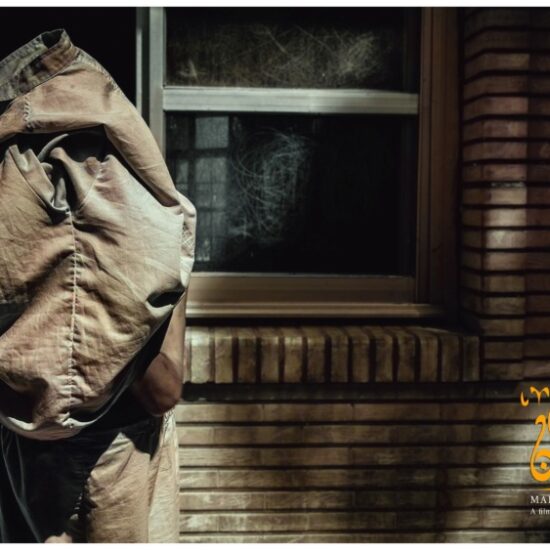
Bicycle Days, Review: Going round in circles
A realistic village setting, a bunch of child actors picked from local schools, working together with adults who have theatre/film experience, concerns and issues that could easily be part of the life of inhabitants of this milieu, and yet they do not all add-up. Bicycle Days is a children’s film, with children being its primary audience. But children will be escorted by adults, when they go to cinema halls, and even if it is a children’s film, the narrative should resonate with adults too. To be fair, in many parts, the film does strike a chord among adults, but in other parts, it is too simplistic, often capturing vignettes rather than plot progressions.
Nine going on ten, bright village boy Aashish is unhappy that all his close friends have changed their schools and are now attending one in the nearby town. What is more, his sister has already moved to the town school. He too wants to move there. But his father is a priest, with limited means, and asks him to wait for another two years. This makes Aashish sulk all the time. A class topper, he starts doing the unthinkable bunking school. A cricket prodigy, he begins to lose interest in cricket too, and misbehaves on the cricket field. What rubs salt into his wounds is the fact that the local politician gifts bicycles to his classmates, but denies him one, since he lives rather close by, and does not need one. This comes as a double whammy, since his grandfather gifts a cycle to his sister.
In addition, he has to use the second-hand books of his sister, an idea he hates. All this takes its toll on the impressionable lad. He has a loving father, a loving mother and as loving grandfather, but his frustrations alienate him from all of them. Around this time, a teacher named Shekhar joins his school and teaches them science. Shekhar has a story of his own and is initially very unhappy at being posted there, and he struggles a bit with Hindi terminology, as the school uses the Hindi language as a medium of instruction, for names he had studied in English. Somehow, he seems to get along very well with Aashish. One day, when Aashish throws a tantrum at home, his father, in a fit of anger, tells him to leave the house and never come back. Aashish leaves in a huff. Everybody expects that he will return by evening, but he does not.
Largely the work of Devyani Anant, Bicycle Days has been written produced and directed by her. Having worked as assistant director for many years, this Chhindwara (Madhya Pradesh, central India) girl has a self-confessed predilection, almost a fixation, for children’s stuff. Little wonder then that her debut film is a children’s movie. The writing is episodic, and even when it is not, it can be tied together as episodic. More like a Diary, Bicycle Days shifts focus once too often. A significant portion is devoted to Aashish’s exploits on the cricket field, which is all too predictable. But she does introduce novelty when he misbehaves. Then she introduces a “crush” element, with one of the students getting smitten by a classmate and going down to her house to gaze at her. Although such crushes have been seen very often in Hindustani cinema, Devyani resolves the matter quite imaginatively.
Pronunciation is suspect in many pieces of dialogue. Bringing in a Kabeer (a saint of yore) doha (couplet) as a tool to evoke self-realisation in Aashish sounds too simplistic a ploy, even if it is easily acceptable for the locals. The entire back-story of Shekhar, though done subtly, does not add to the merits of the film. Announcing the bicycle gift “for all”, the school principal commits a gaffe that is unpardonable, not only for Aashish but for viewers too. One wonders whether it is necessary to interrupt a class and make announcements, as has been done twice. Unless these announcements are extremely urgent, they should have been made at assembly time. There is an impactful shot of Shekhar saying something in scientific Hindi, and the students staring at him blankly. For some reason, Devyani cuts the shot even before we can fully register the expressions of the students. She has used an element from her own life, related to a gift she was denied, and how her friends rallied around her. Great emotional height. But the way it is executed here seems odd. Would a nine-year old hand over a note to a senior public official, announcing a boycott, and stand there waiting for him to read it?

Darshit Khanwe as Aashish is in character, sulking most of the time. Soham Shah, a Gujarati-speaking actor, as Shekhar Choudhary, struggles a bit with the dialogue but manages to underplay, as required. The character should be given a pat on the back for having resolved the crisis without really trying. Mitul Gupte as Lakshman, Aashish’s father, reminds you of Pankaj Tripathi. He is occasionally uneasy. Nidhi Dewan as Urmila, Aashish’s mother, gives a polished performance. Umesh Shukla as Dadaji, Aashish’s grandfather, must be a theatre veteran, and the experience shows. Adequate support comes from Rishabh Sah as Chetan, Parv Agarwal as Gautam and Mudit Gunhere as Sunil.
Music by Keyur Bhagat and lyrics by Saheb Shrey have some relevance while you are watching the film. There is no recall value afterwards. Cinematography P. Kalyani Sunil uses a hidden camera only once, and that is to the lady/gent’s credit. No fancy shots have been composed neither have very challenging camera positions negotiated. The location of Devyani’s native Chhindwara is itself idyllic. Editor B. Mahanteshwar has had to juggle episodic tracks. More imagination was needed to find cutting points, which often go nowhere. There are a couple of abrupt cuts. One finds moments when background music scorer Vivek Abhishek surfaces with his synthesiser when not required and at other moments, when one feels that music could add to the scene, he is absent. But then it is the director’s wish that he has to fulfill.
Bicycle Days is a film made on a shoe-string budget and is clean and wholesome, a genre that is becoming an endangered species. A dash of humour would have been more than welcome. Unfortunately, standards and yardsticks of criticism are the same, irrespective of the other variables. Climb on if you need some relief from the head-chopping mayhem that has been coming your way of late. You may go round in circles, but you will be safe. Only four screens in Mumbai are screening Bicycle Days.
Rating: **
Trailer: https://youtu.be/yw1h-jGkUoU














